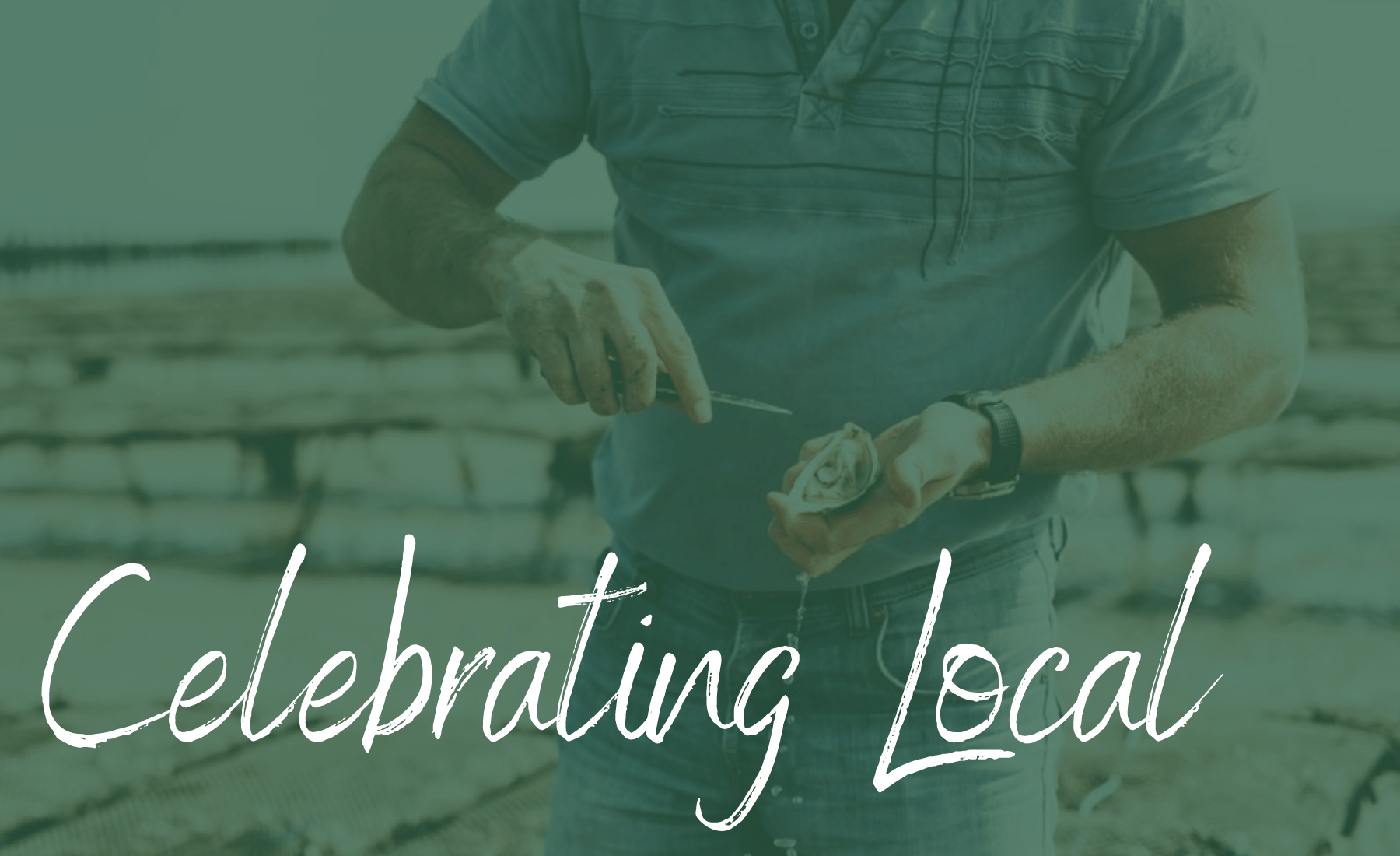Local Ingredients
Celebrating Island Produce

We love to celebrate our Island’s produce! From freshly-shucked oysters, to vegetables grown in the Jersey sunshine, we source as much as we can from Jersey’s farms, fields, and waters.
Local Ingredients
We strive to source as much as we can from Jersey: whether it’s meat, fish, shellfish, dairy, vegetables, fruits, or even spirits and liqueurs, our aim is to celebrate our Island home, support our local economy, and promote local growers and producers.
Some ingredients simply aren’t produced on the Island, and in this case, we’ll always aim to source from as nearby as we can, but also taking into account ingredient quality, supplier welfare practices, and supplier environmental credentials.
What do we source from Jersey?
![]()
Shellfish such as spider crabs, lobster, and chancre crabs are plentiful in Jersey’s waters. You’ll find locally-caught crab on our menus all year, and lobster over the summer months.
Scallops are also caught in the wild in Jersey waters. The ones we serve are hand-dived from local seas.
Our oysters are also always local. Jersey does have a small population of wild oysters, but these aren’t harvested for consumption. The oysters that are eaten in Jersey come from one of the Island’s oyster farms, where the oysters are carefully grown in special ‘oyster beds’ in the shallow waters.
![]()
Lots of Jersey’s wet fish is exported to the UK and France, so unfortunately most wet fish you’ll see on Jersey menus is not local.
We try to get local fish where we can, including mackerel, skate, and sole. Speak to your server when you visit to find our which fish on the menu is local: we often have locally-caught fish as our Fish of the Day.
![]()
We use local meat where we can, such as Brooklands Farm Pork Sausages, and Jersey beef mince.
Not much meat is produced in Jersey, though, and Jersey’s famous dairy cows are unfortunately not great for steaks: ex-Dairy cow meat tends to be tougher, and is not widely available to the restaurant market.
![]()
We source almost all of our Dairy produce from Jersey: whether it’s Jersey milk, local cream, Jersey yoghurt, Jersey ice cream, or Jersey butter, there’s so much Dairy produce available here, and we use it all. Whether you’re enjoying a yoghurt & granola pot from Café Ubé, an ice cream sundae at Jersey Crab Shack, or creamy seafood taglierini at Oyster Box, it all features locally-produced dairy delights.
![]()
Grown in the Jersey sunshine, our Island offers an abundance of fruit throughout the seasons.
From fresh summer berries to citrus fruits, autumn apples to damsons and plums, we strive to feature seasonal local fruit on our menus according to the time of year.
![]()
Jersey’s farms and fields cultivate an array of vegetables: from the famous Jersey Royal potato, to squashes and pumpkins, root vegetables, brussels sprouts, broccoli, salad veggies, lettuces, herbs and spinach. We purchase as many local vegetables as we can, using suppliers like Master Farms, who grow fresh produce in their Jersey greenhouses and farmland.
![]()
One thing Jersey does well is booze: you’ll find plenty of local spirits, including Channel Island Liquor Company gin and vodka, locally-infused rums, and brandy made with Jersey apples across our Drinks Menus.
If beer or cider are more your thing, we also have locally-brewed craft beers and ales, and Channel Island cider.
![]()
We often use special Jersey products across our menus, such as Jersey Black Butter: a delicacy made every autumn from locally-grown apples.
As well as celebrating local foods, we also aim to source ethically and responsibly.
Ethical & Responsible Sourcing
Sustainability isn’t just about using local produce – we also care about ethical and responsible practices when choosing which ingredients to use.
This includes sourcing fish – such as our Wiltshire smoked trout – and meat – such as our aged British beef – from suppliers that care about animal welfare, and who have animal welfare accreditation to demonstrate their commitment to the wellbeing of the animals that they farm. We only buy free-range eggs across all of our sites, and we have regular meetings – including site visits – with our suppliers, to make sure we’re confident in their animal welfare practices.
We also consider the impact of our suppliers on the environment, before deciding whether to work with them. Agriculture and aquaculture can have a significant environmental impact, so we consider the techniques our suppliers have in place to minimise these, such as crop rotation, not using pesticides, and using less harmful strategies to farm or catch fish. We seek suppliers that have environmental certifications where possible.
Lastly, we are also committed to ensuring that our suppliers have a positive culture, and treat their employees well. We use Fair Trade certified products where possible, like coffee beans for our restaurants and cafés, as well as prioritising suppliers who are certified Living Wage employers in our Procurement processes.




